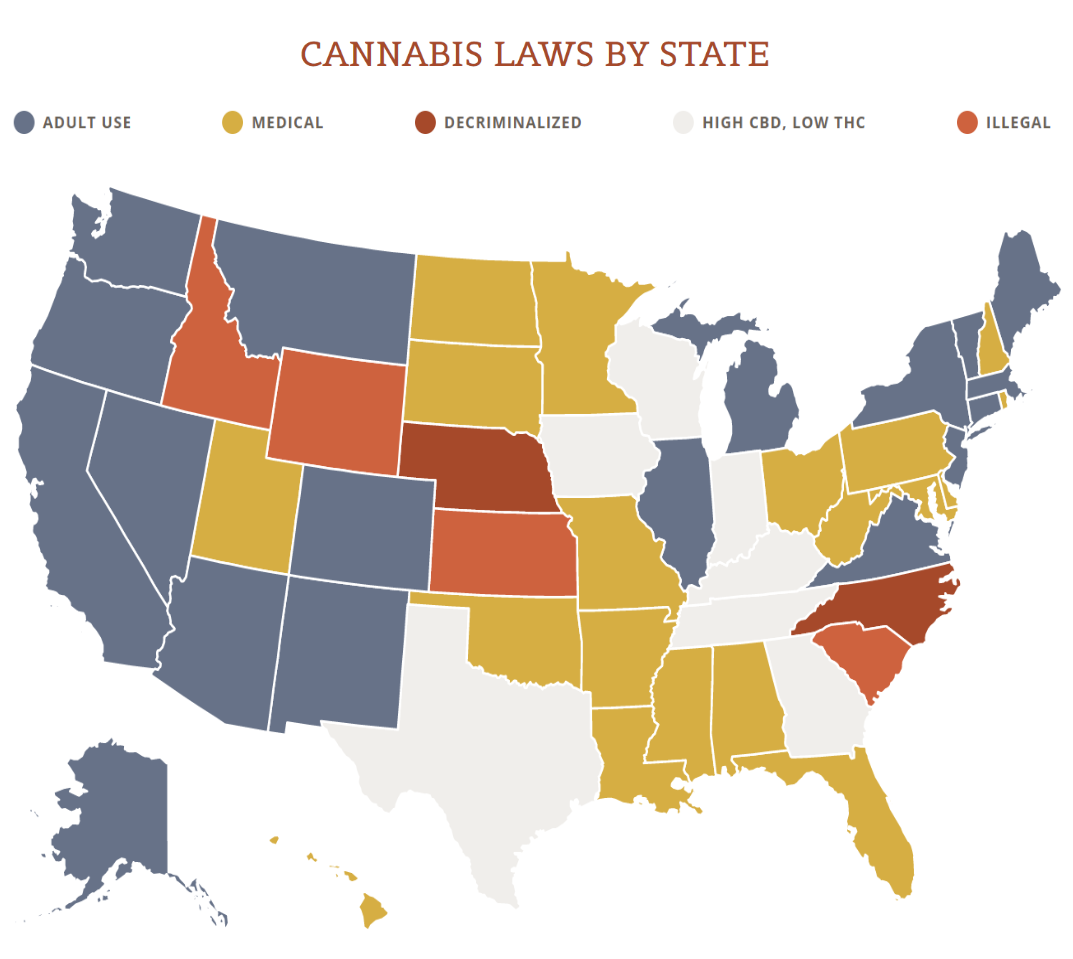 The recent wave of crackdowns on cannabidiol (“CBD”)-infused alcohol beverages has further exacerbated public confusion regarding the legal status of the cannabis plant’s non-psychoactive compound.
The recent wave of crackdowns on cannabidiol (“CBD”)-infused alcohol beverages has further exacerbated public confusion regarding the legal status of the cannabis plant’s non-psychoactive compound.
This post provides an overview of the regulatory framework of alcoholic beverages, including pre-manufactured industrial hemp-infused drinks and “homemade” alcoholic drinks infused with CBD oil or extracts.
Pre-Manufactured Alcohol Beverages Infused with Hemp
As we previously explained, alcoholic beverages are regulated by federal and state laws. Cannabis is heavily regulated at the state level but unlike alcohol, it is—for the most part—strictly prohibited under federal law. However, one variety of cannabis, hemp, was recently legalized under the Agriculture Improvement Act of 2018 (“2018 Farm Bill”), which removed that particular crop from the definition of “Marihuana” under the Controlled Substance Act (“CSA”). Consequently, hemp is allowed in the formulation of alcohol beverages so long as the product meets specific criteria imposed by federal and state alcohol regulatory bodies.
The formulation of hemp-infused alcoholic drinks is regulated by the U.S. Alcohol and Tobacco and Trade Bureau (“TTB”) as well as by state liquor control agencies in states where the production and sale of hemp-infused drinks is allowed. Indeed, in its latest FAQ’s (which pre-dates the enactment of the 2018 Farm Bill), the TTB declared it understood the 2014 Farm Bill to only authorize the use of hemp in the production of alcoholic beverage products for sale within limited state-sanctioned pilot programs.
However, in the same FAQ’s, the TTB explained that before it approves a formulation, it consults with the Food and Drug Administration (“FDA”) to determine whether a hemp ingredient is safe for consumption and whether its use is lawful under the Food, Drug & Cosmetic Act (“FD&CA”). As we previously explained, the FDA currently deems the use of hemp-CBD-infused foods and drinks as unlawful because CBD has been approved in the treatment of epilepsy (Epidiolex); and therefore, can only be used as a drug. As such, the FDA has refused to recognize hemp-CBD as a safe food additive, which means it would treat hemp-CBD infused alcoholic beverages as unlawful under the FD&CA.
Consequently, alcoholic beverages derived from parts of the hemp plant that do not contain CBD, such as hulled hemp seeds, hemp seed protein and hemp seed oil, grown pursuant to a state pilot program that allows the commercial sale of these products, seem to be the only hemp-infused beverages eligible for TTB approval at the moment.
View the US Map of Marijuana Legality
Drinks Infused with CBD Oil or Extracts
The alcoholic beverages recently banned from state bars and restaurants consisted of pre-manufactured alcohol beverages to which CBD oil or extract was later added. Unlike manufactured alcohol beverages, alcoholic drinks sold in bars and restaurants are directly regulated by state liquor control boards and state departments of health, which are free to defer to and adopt FDA regulations.
Although the FDA has limited its enforcement actions against CBD-infused products by sending warning letters, state agencies have begun confiscating those products, pursuant to FDA guidelines that categorize CBD as unsafe food additives. As I previously explained, food additives must receive FDA pre-market approval to be deemed safe for human consumption. However, given the FDA’s current position on CBD-infused products, such approval has yet to be granted.
Because these “homemade” CBD-infused alcoholic drinks are devoid of TTB and FDA market approval, it is understandable that they be banned from local restaurants and bars as they pose a potential threat to health and safety.
So as of now, only TTB-approved hemp-infused alcohol beverages seem to be legal and officially “safe” for human consumption. And to be honest, we don’t know of any that have been approved. That said, this is an incredibly fast-evolving area of law and policy, and we have seen a dramatic escalation of interest in this space ever the past year.
























